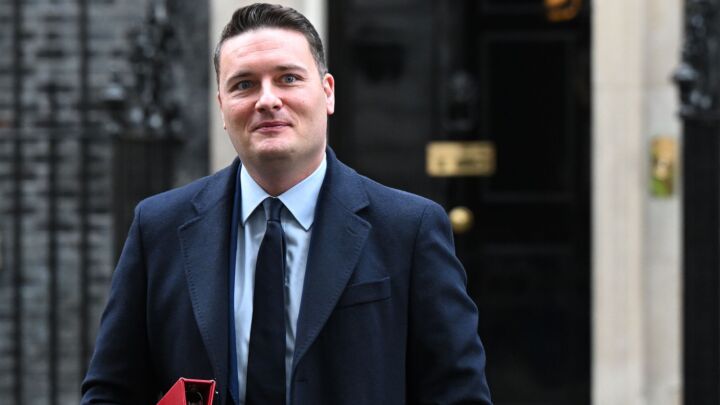The publishing industry’s shameful betrayal of Kate Clanchy
Pan Macmillan has finally apologised for giving in to the right-on book-burners.

Want unlimited, ad-free access? Become a spiked supporter.
Four years ago, celebrated author Kate Clanchy was cancelled in a swift and horrendous fashion.
Her book, Some Kids I Taught and What They Taught Me, published two years before, was set upon by authors and social-media users who decided it was racist, even eugenicist, in its description of ethnic-minority and disabled characters.
Her publisher, Picador, immediately caved in. It issued a statement apologising for the hurt caused and committed to reworking the text. Not long after, Clanchy and Picador parted company.
Now, it seems, Clanchy’s former publishers have had a change of heart. Pan Macmillan has issued a striking apology to her (Picador being one of its imprints). ‘I’m sorry for the hurt that was caused to Kate Clanchy’, said CEO Joanna Prior, calling Clanchy’s treatment part of ‘a regrettable series of events in Pan Macmillan’s past’.
Regrettable doesn’t really cover it. What was allowed to happen to Clanchy – an Orwell Prize-winning writer with almost three decades of teaching experience – was truly shameful.
Some Kids I Taught and What They Taught Me is a reflection on Clanchy’s time as a teacher. It was initially greeted warmly by the public and critics alike. But in 2021, ill-meaning activists decided to revisit it in light of the Black Lives Matter (BLM) hysteria. They were apparently determined to find something they could claim was bigoted, no matter how spurious the allegation. And find something they did in Clanchy’s ‘controversial’ descriptions of some of her pupils, with references to one’s ‘chocolate-coloured skin’ and another’s ‘almond-shaped eyes’.
In the febrile post-BLM climate, this was enough to prompt a social-media-driven cancellation campaign against Clanchy, principally across Twitter and Goodreads. The smears and attacks came thick and fast: ‘Bigoted, classist, fatphobic’; ‘This book is so problematic… I don’t even know where to begin’; ‘WHO THE HELL AUTHORISED THIS PUBLICATION?’
Perhaps even more revolting than the gleeful public flaying of Clanchy was the response of the literary world. Instead of offering solidarity to a fellow writer, literary types turned on her. Author Monisha Rajesh claimed Clanchy’s memoir was ‘rooted in eugenics and phrenology… [and] riddled with racist and ableist tropes throughout’. She later referred to the author as ‘KKKClanchy’.
Philip Pullman initially defended Clanchy, before making a yellow-bellied retreat when the mob rounded on him, too. ‘I reacted in haste’, he said in a now-deleted tweet. The criticisms of Clanchy’s work were ‘reasonable and balanced’, he continued, before apologising ‘for causing harm’ by defending her. Pullman’s cowardly volte-face captures the utter derangement of a time when cultural elites chased down anyone for deviating from the ‘anti-racist’ consensus.
Instead of sticking up for Clanchy, Picador decided to grovel before her accusers. It released no fewer than three apologies in August 2021, begging for forgiveness for the ‘emotional anguish’ the book had caused. An earlier drafted statement – now uncovered by the BBC – was prefaced with a description of Clanchy as a ‘force for good in the worlds of education and publishing for many years’ who had ‘transformed the lives of many young people’. It was never published – deemed too generous, perhaps. Instead, she was abandoned to her accusers by industry professionals who should have had her back.
‘I’ve been given the chance to do some re-writing on Some Kids. I’m grateful’, Clanchy wrote on social media at the time, likely under extreme pressure to atone. Rather chillingly, she ended her own apology with an unnerving statement: ‘I am not a good person… not a pure person… You are right to blame me, and I blame myself.’ The wording is reminiscent of the forced self-denouncements made by the Chinese Communist Party’s ‘class enemies’ during the Cultural Revolution: I am guilty. I have failed the revolution. I must re-educate myself.
The ordeal drove Clanchy to suicidal thoughts. ‘I really wanted to die for a very long time’, she told the BBC recently of that period of her life. ‘I have only been admitted back into polite society very recently.’
Clanchy’s mistreatment illustrates the cruelty of cancel culture, and the cowardice and conformism of the publishing industry. She lost her publisher, her agent, a significant amount of her income as an academic and was ritually humiliated by a frothing mob who smeared her.
We can only hope that Pan Macmillan’s apology is evidence of an industry finally taking a good, hard look at itself.
Georgina Mumford is an editorial assistant at spiked.
You’ve hit your monthly free article limit.
Support spiked and get unlimited access.
Support spiked and get unlimited access
spiked is funded by readers like you. Only 0.1% of regular readers currently support us. If just 1% did, we could grow our team and step up the fight for free speech and democracy.
Become a spiked supporter and enjoy unlimited, ad-free access, bonus content and exclusive events – while helping to keep independent journalism alive.
Monthly support makes the biggest difference. Thank you.









Comments
Want to join the conversation?
Only spiked supporters and patrons, who donate regularly to us, can comment on our articles.